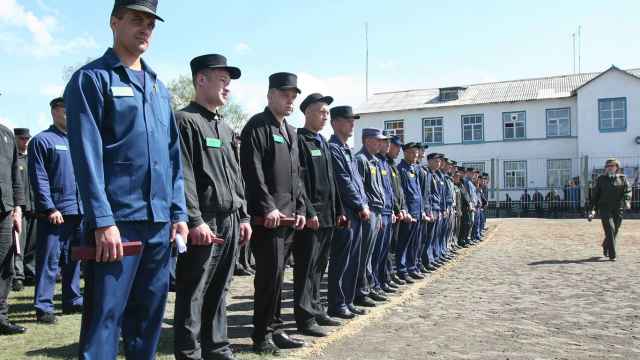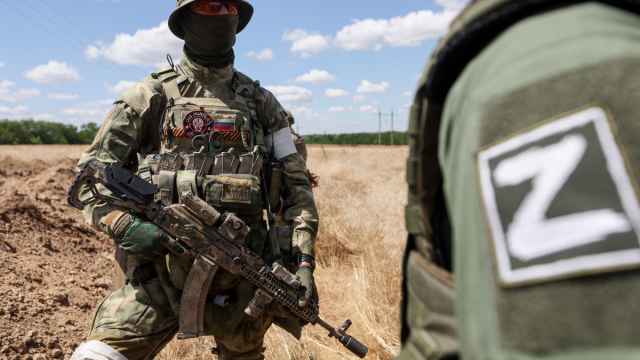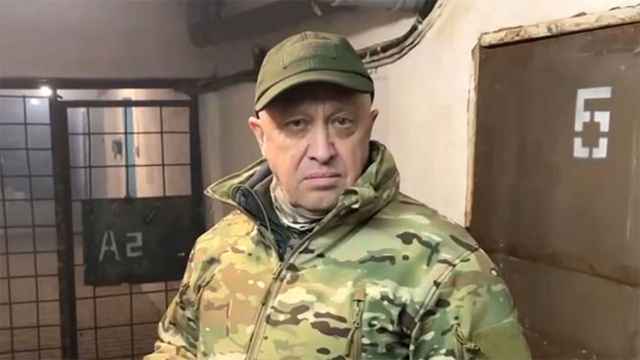Some 32,000 former prisoners recruited by the Wagner mercenary group have returned to Russia after fighting in Ukraine, the private military company’s founder Yevgeny Prigozhin said Sunday.
“As of June 18, 2023, 32,000 persons previously convicted and who took part in the special military operation among the ranks of the Wagner PMC went home at the end of their contracts,” Prigozhin said, using the Kremlin's preferred term for Russia's invasion of Ukraine.
The announcement came just days after President Vladimir Putin publicly confirmed investigative reports that he had personally pardoned Russian convicts who signed up to fight with the mercenary group.
Prigozhin boasted that less than 1% of all Wagner recruits have committed crimes after completing their contracts and being released.
“Persons released from prison during the same period without a Wagner PMC contract committed 80 times more crimes,” Prigozhin claimed in an audio message published by his press service.
Wagner began recruiting prisoners in Russia's sprawling penal system last summer, offering convicts a pardon if they survived six months in Ukraine.
According to leading prisoner’s rights activist Olga Romanova, the private army recruited some 48,000-49,000 convicts.
In April, Romanova told The Moscow Times she believes some 30,000 prisoners recruited by Wagner were killed in combat, suggesting that Prizoghin's figure of 32,000 returning former convicts is exaggerated.
Wagner announced an end to its prisoner recruitment campaign in February.
Prigozhin’s Wagner played a key role in the war’s longest and bloodiest battle to seize the eastern Ukrainian city of Bakhmut, whose capture the private army chief announced in May.
After years of denying any links with the mercenary group, which is accused of brutality and destabilization in conflict zones around the world, Prigozhin confirmed last year that he had founded Wagner.
Private military companies like Wagner are illegal under Russian law.
A Message from The Moscow Times:
Dear readers,
We are facing unprecedented challenges. Russia's Prosecutor General's Office has designated The Moscow Times as an "undesirable" organization, criminalizing our work and putting our staff at risk of prosecution. This follows our earlier unjust labeling as a "foreign agent."
These actions are direct attempts to silence independent journalism in Russia. The authorities claim our work "discredits the decisions of the Russian leadership." We see things differently: we strive to provide accurate, unbiased reporting on Russia.
We, the journalists of The Moscow Times, refuse to be silenced. But to continue our work, we need your help.
Your support, no matter how small, makes a world of difference. If you can, please support us monthly starting from just $2. It's quick to set up, and every contribution makes a significant impact.
By supporting The Moscow Times, you're defending open, independent journalism in the face of repression. Thank you for standing with us.
Remind me later.






